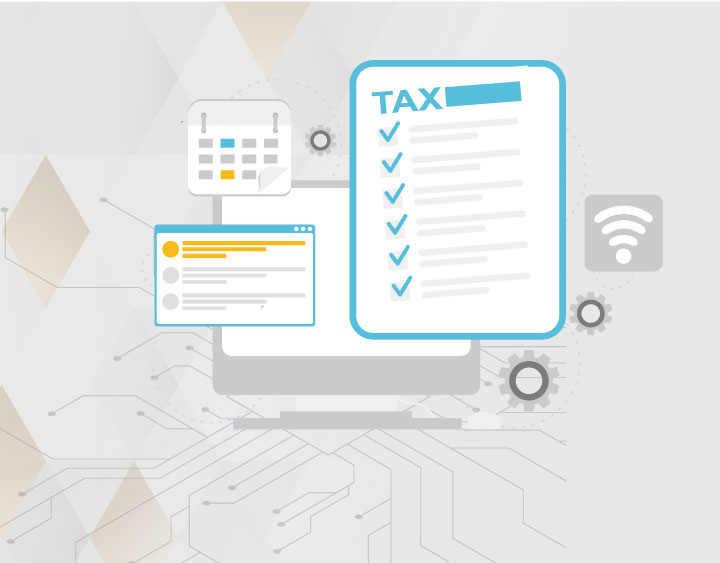
If you’re into a SaaS business, especially one involving subscription and recurring revenue management, tax integration can play a very important role in ensuring your company’s overall compliance status. Getting the right integration solution to help you with your tax computations is important. There are many different solutions available in the market, and it takes work to choose one. You need to understand your needs and requirements before you go ahead and make a decision.
Furthermore, if you are a startup, you already have a lot on your plate and don’t want to waste time investigating numerous taxing procedures. Hence, tax integration is the best choice any SaaS business can make. But what should you keep in mind while selecting a tax integration? Let us find out.
Different Types of Sales Taxes
SaaS and subscription businesses, when operating through the regions, may need to manage different types of sales tax across the countries to cater to their global customer base, which may include:
- The Goods and Services Tax (GST) – is a value-added tax levied on most goods and services sold for domestic consumption. It is a comprehensive, multistage, destination-based tax: comprehensive because, except for a few state levies, it has absorbed practically all indirect taxes.
- Value-added Tax (VAT) – is a consumption tax that is levied on a product repeatedly at every point of sale at which value has been added. The VAT Directive authorizes Member States to impose a minimum VAT rate of 15%. They may, however, impose lower rates for certain goods and services or temporary exemptions from VAT. As a result, examining VAT rates by Member states is strongly advised.
- The European Union value-added tax (or EU VAT) – is a value-added tax on goods and services within the European Union (EU). The EU institutions do not collect the tax, but each member state must enact a value-added tax that complies with the EU VAT law in national legislation.
Tax Challenges Faced by SaaS Businesses
Tax requirements are obligations that a company must meet to be compliant. In general, most companies are required to keep records of all payments made to suppliers, employees, and subcontractors. The records should include the name of the recipient, the date and amount paid, and a description of the goods or services provided.
But there are some specific requirements that subscription-based SaaS companies must comply with that can be quite tricky if you don’t have a tax expert on your side. Here are some of the main pain points that subscription-based SaaS businesses face on the tax front.
- Most SaaS firms have clients from all around the world. This might include various states or nations. In such circumstances, sales tax varies greatly between states and nations. Not only do you need to stay up to date on the latest policy changes and revisions, you might also be required to register your business individually in separate areas. For instance, in the US, a software business needs to register itself in all 45 states if it’s planning on nationwide sales. The concept to creating a nexus to sell to people within specific state borders is a tax regulation that came into play very recently and hence lots of SaaS companies struggle to manage the complexities that come along with it.
- Subscription packages and bundles have different taxation laws. SaaS enterprises must calculate taxes in multiple brackets based on the contents of each bundle and its price plan. Hence, as a subscription business, you need a tax solution that has been designed specifically for your industry and nothing less.
- In the event of an international transaction, the effort process of deciding which jurisdiction it falls under is nothing short of an ordeal for your average software company. This is one of those issues that can cost you days and weeks of manual labor without the help of a tax integration solution.
- If you are registered to collect sales tax, you may regularly be subject to audits by the state’s tax authorities. These audits ensure that you collect and remit sales tax correctly. During an audit, the tax authorities will look through your sales paperwork, including invoices, receipts, and other records. They will likely call some of your customers to ensure they have correctly paid their sales taxes. Subscription businesses come under so much scrutiny during these audits, especially due to the complexities of tax filing involved. Even the smallest oversight can trigger a red flag for your business. Only a tax integration solution that properly understands the workings of subscription-based companies can help you maintain clean and updated books.
Tax Integration at saaslogic
As a comprehensive subscription and recurring revenue management solution, saaslogic offers one of the best tax management solutions for subscription-based SaaS businesses. Our integration with some of the leading tax solution providers enables us to offer exceptional support to our merchants in maintaining tax compliance.
As a SaaS company ourselves, we know all too well how complicated tax laws can get and how frequently they need to be updated in order to stay competitive and current in the market. Hence, our solution is to offer the easiest tax integration for our customers that can be linked directly to their CRMs and books, so that all tax-related functions for your product take place seamlessly and almost effortlessly.
Excited to learn more about our tax support functionalities. Get in touch with us today!
